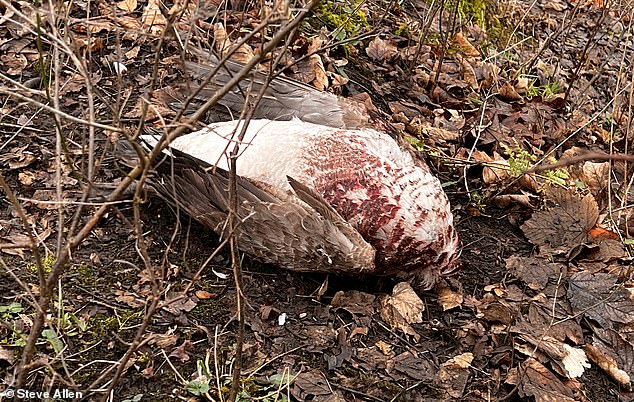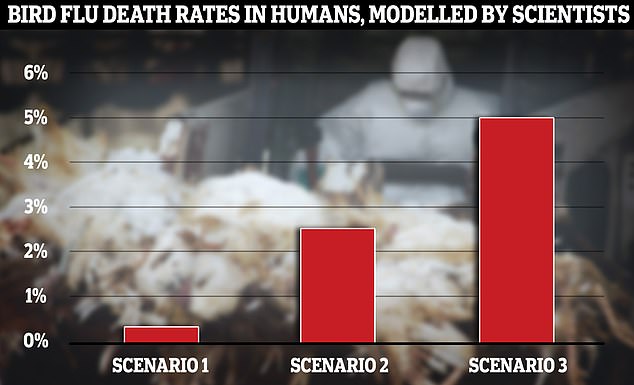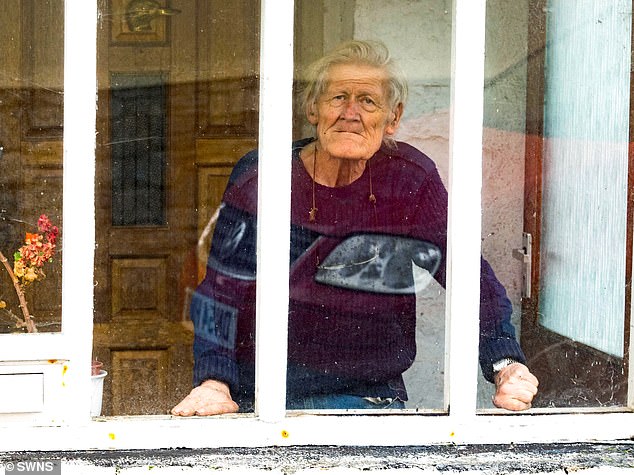Britons should stay at least 2 meters away from wild birds, according to new Government advice drawn up to thwart the risk of another pandemic.
In its first ever public guidance aimed at helping Britons ‘stay safe’, officials from the UK Health Security Agency (UKHSA) have said bird flu poses a ‘risk to human health’.
Bosses have called on people to minimize their contact with all wild birds, including pigeons and seagulls.
According to the guidelines, created with the RSPCA and the Animal and Plant Health Agency, Britons are asked not to “touch or handle wild birds or their droppings”.
At all times, people should also aim to keep “at least two meters apart” “if you can”.

More than 700 confirmed cases of H5N1 have been detected among wild birds in England since September 2022, according to the UKHSA. Pictured above is an outbreak of bird flu last February in Queens Park, Heywood and Rochdale.


British scientists tasked with developing “early human transmission scenarios” for bird flu have warned that 5 percent of infected people could die if the virus spreads to humans (shown in scenario three). In another scenario, scientists assumed that 1% of infected people would be hospitalized and 0.25% would die – a figure similar to that of Covid in fall 2021 (scenario 1). The other saw a mortality rate of 2.5 percent (scenario two)
The UKHSA’s instructions come amid growing fears that bird flu could spark another human pandemic.
There is no evidence that the virus, which is believed to have killed millions of birds in Britain and infected farmers, is currently capable of spreading easily between people.
But experts have long feared that an outbreak of H5N1, which kills nearly 50 percent of those infected, is imminent.
This comes just a month after Beijing revealed the world’s first-ever case of a new bird flu. A farmer in her sixties died after a two-week battle with the H10N5 strain, a novel disease.
And last year, a Chinese woman became the first person to die from the H3N8 strain.
H5N1, which experts have identified as having pandemic potential in humans, has already fueled the world’s largest ever outbreak of bird flu.
Over the past two years, it has affected more than 200 million domestic birds worldwide, in addition to countless wild birds, and has spread to mammals like mink, foxes, raccoons and l ‘bear.
Experts fear that increasing spread between species could allow the virus to pick up mutations that would allow it to spread among humans.
UKHSA advice to stay at least 2 meters away from wild birds has been listed as a step for people who “need to handle” animals.
He also called on Britons to keep birds outside, saying: “Do not bring them into your house or an enclosed space. »
Other tips include wearing clothing that prevents scratch or bite injuries, such as pants or long sleeves, and using masks, disposable gloves and eye protection.


Alan Gosling (pictured), a retired engineer from Devon, caught the virus after his ducks, some of which lived inside his house, became infected. No one else caught the virus
Humans are unlikely to contract bird flu from eating poultry and game birds because they are sensitive to heat and cooking poultry properly will kill the virus.
The usual symptoms in humans are high fever, cough, sore throat, muscle pain, and a general feeling of being unwell.
And just like the common flu, it can quickly progress to serious respiratory illness and pneumonia.
Human infections occur when the virus enters the eyes, nose, mouth or is inhaled.
Under the new guidelines, officials have advised Britons to contact their regional health protection team if they have been in contact with confirmed or suspected cases of bird flu.
This can be carried out by a health or animal care professional after a bird has been tested for the virus by a vet or DEFRA.
They warned, however, that the risk to people remains very low and there is currently no evidence that it can spread more easily from person to person or between people.
TThere have only been five cases of Britons infected since the current outbreak began.
Retired engineer Alan Gosling – the first – caught the virus in early 2022 after his ducks, some of which lived at his house in Devon, became infected.
